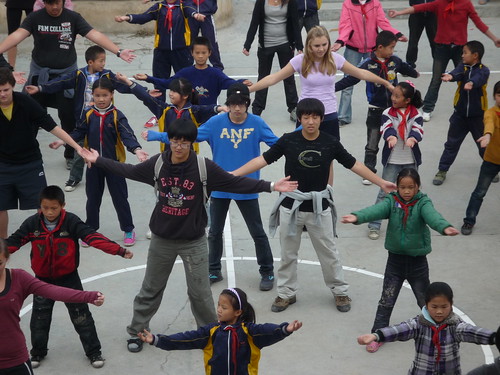"The current study has clear educational implications. In fact, the experimental condition was methodologically designed so that could be easily replicated in schools. For example, the only equipment needed that schools may not already have in inventory is a set of reasonably priced heart rate monitors. Also, a 12-min exercise session is brief enough to be realistically integrated into a typical school day. Physical education (PE) classes could intentionally be scheduled before academic classes. PE classes could also be required to include acute aerobic exercise, thereby allowing students to reap cognitive and academic benefits as well as the intended physical benefits. Unfortunately, instead of capitalizing on PE, there is a current decrease in the number of high schools offering PE and PE is rarely a required college requirement (National Association for Sport and Physical Education, 2010). Further, PE classes are being cut most often from schools in lower-income communities (National Association for Sport and Physical Education, 2010).
In summary, an acute session of aerobic exercise improved the SVA of both low-and high-income adolescents. The improvement seen in the low-income adolescents was so large that their SVA abilities matched those of the high-income adolescents after just 12-min of aerobic exercise. Further, the benefit to SVA lasted for 45-min for both low- and high-income adolescents. Moreover, the mean reading comprehension score of low-income adolescents who engaged in an acute session of aerobic exercise was higher than that of low-income adolescents who did not engage in any exercise. In fact, the mean reading comprehension score of low-income adolescents who engaged in an acute session of aerobic exercise was as high as their high-income counterparts’ mean reading comprehension score. The field of education is in need of research-based interventions that are low in cost and easy to implement in low-income communities (Institute of Educational Sciences, 2014). Based on the results of this study, we encourage the implementation of an acute session of aerobic exercise as such an intervention."
http://journal.frontiersin.org/Journal/10.3389/fpsyg.2014.00575/full

No comments:
Post a Comment